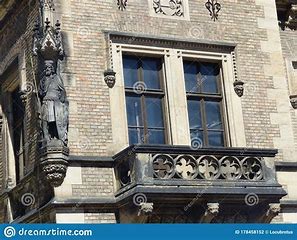
Pope Urban V temporarily escaped Avignon, France and went back to Rome. But it only lasted two years. He moved back to Avignon where he died. Pope Gregory XI tried again less than a decade later. And it worked.
Pope Gregory XI was born Pierre Roger de Beaufort about 1329-1330 in Maumont, France. His uncle, Pierre Roger, was Pope Clement VI, the fourth pope at Avignon. At eighteen, young Pierre was called to Avignon where his uncle named him a cardinal deacon. With all the riches available at the time, the young man also received several benefices. Then he went to the University of Perugia to become a skilled canonist and theologian. Over time, he became known for his humility and purity of heart.
Pope Urban V died in December 1370. As a cardinal deacon, Pierre joined the conclave. Unwilling to be pope, Cardinal Roger opposed his own election, but eventually conceded. However, he first needed to be a priest. On 4 January 1371, he was ordained. The next day he became pope at Avignon, taking the name Gregory XI.
His Papacy
The first thing he did was try to negotiate a truce between France and England. That failed and the war continued for years.
Next, he parleyed a treaty between Sicily and Naples at Villeneuve-les-Avignon, creating a permanent settlement for peace in August 1372,
In the meantime, Pope Gregory worked on a “regle d’idiom”. This was a command that the Catholic clergy embrace the concept of language revival. If you notice, any time a country takes over another country, the language of the colonized country seems to die away. Gregory did not want that in Europe. So, he insisted that clerics speak to their parishioners in the local language, so that it would not disappear. But, also, so that the Church would not become a pawn of imperialism or coercive language death.
Pope Gregory’s predecessor, Pope Urban V, had called for a crusade in November 1366 to stop Christians from killing other Christians and also called for an end to corrupt practices at monasteries such as charging visitors fees to see holy sites. Influenced by Urban and the many letters he received from St. Catherine of Siena, he tried to call for another crusade in 1376. Nothing became of it.
Pope Gregory did make a massive mistake that caused The War of the Eight Saints. It started with his nominating too many French men to become governors, legates and cardinals in Italy. For that reason, the Italian city-states did not want the pope back. Florence did not want the pope back because rumor had it that he wanted to expand the papal states, taking land from the city-states. Gregory was still in Avignon. He turned his attention to Archbishop Bernabo Visconti of Milan, who had taken control of Reggio, a papal fief.
First Gregory excommunicated him. Then Florence and other city-states joined forced and declared war on the pope. Violence expanded all over the peninsula. Mercenaries were hired to kill and maim. Gregory excommunicated all the government officials in Florence and put the city under interdict. Catherine of Siena visited Avignon for three months in the summer of 1376, trying to get the pope to stop the war for the sake of the Florentine people. It was futile. The war lasted three years, 1375-1378. It was not until Pope Urban VI took over that a peace was negotiated.
St. Catherine’s urging finally made a difference. She insisted that going back to Rome would aid in the peace process. So, Gregory finally took her advice in the fall of 1376. He took a ship at Marseille, went down the coast of Italy and got to the monastery of San Paolo in January 1377. The next day, he made a serious procession into Rome.
The Romans were not pleased. The riots began and Pope Gregory had to retreat to Anagui for months, returning in November of the year. He was disgusted at the lack of welcome and the hatred of the Romans. By winter, he was ready to return to Avignon. But he died 27 March 1378, not yet 50 years old, while a congress of peace was being conducted not that far away.
Unfortunately, things did not go well after his death. The Western Schism saw two anti-popes vie against the new pope, Urban VI. This Urban did negotiate an end to the war between the city states and the pope soon after Urban VI was elected. But the Schism lasted until the Council of Constance, 1413-1418.

Recent Comments